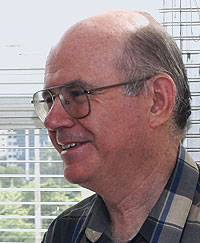Sesame: a research center for the Middle East
Sesame is a center for research and advanced technology around a “third generation” synchrotron light source in construction in Allas, Jordan. It is supported by Unesco and a partnership between Palestinian Authority, Bahrain, Cyprus, Egypt, Iran, Israel, Jordan, Pakistan and Turkey, which have full control over its development, use and funding.
Eliezer Rabinovici, former director of the Israel Institute for Advanced Studies of the Hebrew University of Jerusalem, will present his views on the project and the increments that the proposal received in 2012 at the conference ‘Sesame: A Visit to a Parallel Universe’ on August 22, at 2 pm, in IEA’s Event Room.
The panelists will be professors Nathan Berkovits, of the Institute for Theoretical Physics of Unesp, Mahir Saleh Hussein, of the Institute of Physics of USP and researcher at the IEA, Arlene Clemesha, from the Faculty of Philosophy, Languages and Literature, and Human Sciences (FFLCH), Guilherme Ary Plonski, of the Polytechnic School (EP) and the Faculty of Economics, Management and Accounting (FEA), both of USP, and board member at the IEA, and Bernardo Sorj, director of the Edelstein Center for Social Research and visiting professor at the IEA.
 COOPERATION
COOPERATION
The SESAME (Synchrotron-light for Experimental Science and Applications in the Middle East) will be the first major international research center in the region. It is a joint initiative of scientists and governments of the Middle East and is modeled on the Cern (European Organization for Nuclear Research).
Sesame will both:
- Foster scientific and technological excellence in the Middle East and neighbouring countries (and prevent or reverse the brain drain) by enabling world-class scientific research in subjects ranging from biology, archaeology and medical sciences through basic properties of materials science, physics, chemistry, and life sciences; and
- Build scientific and cultural bridges between diverse societies, and contribute to a culture of peace through international cooperation in science.
The event will be broadcast live from IEA's Event Room at www.iea.usp.br/aovivo.
